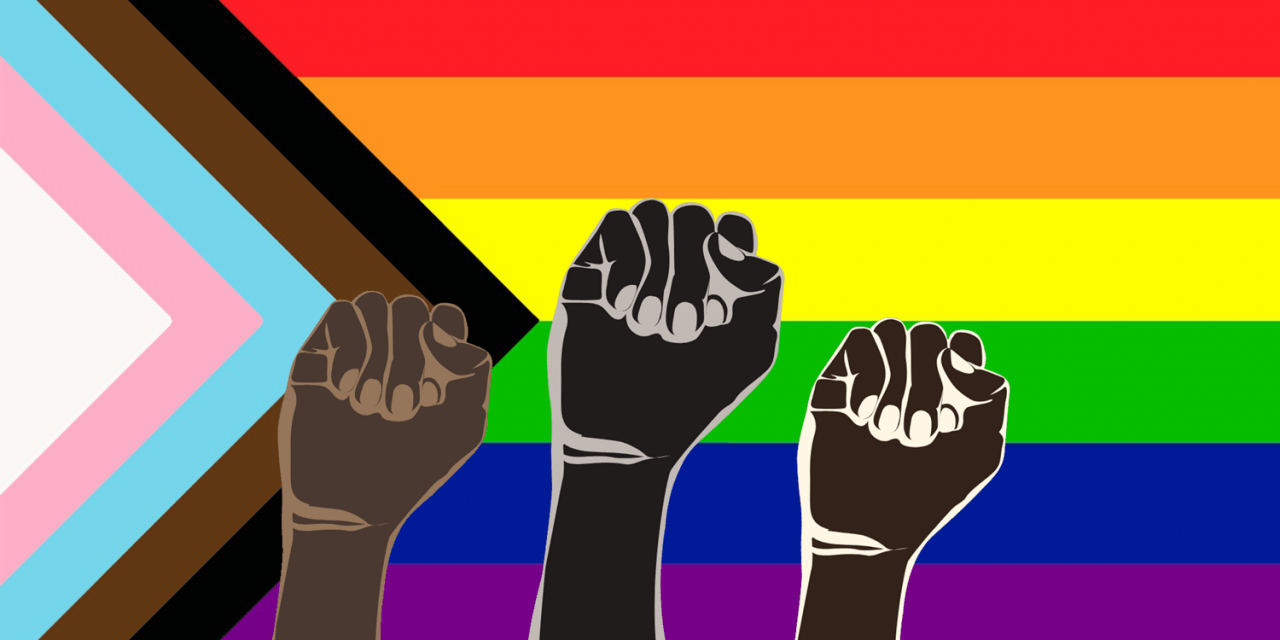People that commit hate crimes based on sexual orientation and gender identity should be held accountable for their actions but, there is a legal loophole that is used around the world to soften their punishments. The LGBTQ+ panic defense, also known as the gay or trans panic defense or the homosexual advance defense, is “a legal strategy that asks a jury to find that a victim’s sexual orientation or gender identity/expression is to blame for a defendant’s violent reaction.” [1] It has been used to mitigate cases of hate crime or murder to manslaughter or justified homicide. The penalties for the latter two are much less severe, with justified homicide absolving the actor of any criminal liability. [2] The defense is used in three ways in the court of law. Defendants can argue that a sexual proposition from the LGBTQ+ victim triggered a nervous breakdown or panic using a defense of insanity or diminished capacity, or that it sufficiently provoked them to induce the defendant to kill the victim using a defense of provocation, or that the victim was about to cause the defendant serious bodily harm using a self-defense argument. [3] The gay and trans panic defense should be banned because they dehumanize the LGBTQ+ community, legitimize homophobia in the court of law, and dishonor a victim’s right to justice.
This multinational overview will commemorate five victims killed in queerphobic attacks by examining their cases and detailing the sociopolitical, legal, and historical landscapes surrounding the LGBTQ+ panic defense and rights in their respective five countries. With the cases in the foreground and the country’s landscape in the background, each case study, first and foremost, honors each of the victims. The power of sharing stories, names, and memories will be made clear by the end of this study. The New Zealand, Australia, and the U.S. case studies may emanate hope but, for the other two, the Philippines and Jamaica, the outlook is bleaker.
Ronald Brown – New Zealand
The first study takes place in New Zealand. Ronald Brown, 69, was a grandfather and salesman from Onehunga, an Auckland suburb. He met Ferdinand Ambach, 29, at a bar and they left together. Brown made an unwanted sexual advance, prompting Ambach to brutalize him with a dumbbell and a banjo. On December 7, 2007, Brown’s body was found on his stairs with the banjo shoved down his throat. [4] Using the defense of provocation, Ambach’s lawyer successfully reduced his verdict of murder to manslaughter, claiming that Brown’s possible rape attempt triggered a “monstrous rage” in Ambach. [5]
Although justice was flouted for Brown, his memory is honored by the fact that he will be the last person in New Zealand to be a victim of the LGBTQ+ panic defense. The Crimes Amendment Act (2009) was royally assented on July 12, 2009 with the purpose of abolishing the partial defense of provocation, making New Zealand the first country in the world to ban this defense. [6]
Andrew Negre – Australia
The setting of the next case study is Australia. Andrew Negre was a 37-year-old outgoing man who lived in southern Adelaide, South Australia with his girlfriend. After making friends at the local tavern, he joined them for a boozy party back at their house on March 31, 2011. At the party, Negre jokingly straddled Michael Lindsay’s lap which prompted him to tell Negre to stop. He apologized and Lindsay accepted his apology. Later that night, Negre asked Lindsay to sleep with him. Lindsay declined so, Negre offered to pay him for sex. Lindsay lost it. He viciously attacked Negre then asked his friend, Luke Hutchings, to check Negre’s pockets. Lindsay then put on gloves before stabbing him 25 times. Following the murder, Lindsay and Hutchings dumped Negre’s body into a creek. [7] At the trial, even though Lindsay did not use the LGBTQ+ panic defense, the Judge was required to explain to the jury that “the crime of murder may be reduced to manslaughter if there was a reasonable possibility that the crime was committed as a result of provocation…a situation [that] would arise if Lindsay suffered a sudden and temporary loss of self-control as a result of conduct on the part of Mr. Negre.” [8] The verdict? Lindsay was found guilty for murder twice, while Hutchings was found guilty of assisting an offender. [9] Even though the verdict saw justice for Negre, the law, or lack thereof, still provided a chance for the provocation defense to prevail.
In the past two decades, the provocation defenses have been challenged in the Australian states. Tasmania became the first state to abolish the defense of provocation in the Criminal Code Amendment Bill (2003). [10] Likewise, in the Australian Capital and Northern Territories, the provocation defense was abolished in 2004 and 2006, respectively. [11] In Victoria, the panic defense’s legal history is a bit more complicated. The provocation defense was abolished in 2005, but a new crime called “defensive homicide” was implemented. This simply shifted the defense strategy’s provocation approach to an issue of self-defense; therefore, it did not guarantee the end of the LGBTQ+ panic defense in Victoria. [12] It was not until nine years later, when the Crimes Amendment Bill (2014) abolished the defense homicide, that the LGBTQ+ panic defense was finally banned. [13] Additionally, Western Australia and New South Wales respectively banned the provocation defense in 2008 and 2014. [14] Furthermore, Queensland’s Criminal Law Amendment Act (2017) established that an unwanted sexual advance does not merit a provocation defense. [15] And most recently, South Australia became the final state to abolish the defense in 2020. [16] Thus, as of 2021, the LGBTQ+ panic defense has been de facto abolished in all of Australia, making it one of the only two countries to do so.
Nikki Kuhnhausen – United States
The third case study is set in the U.S. Nikki Kuhnhausen was a 17-year-old teen living in Vancouver, Washington when she met David Bogdanov, 25. The pair met at a bar on June 5, 2019, drank together, and later engaged in sexual contact. The morning after, the two reunited in his car where she then revealed her transgender gender identity to him. Describing his emotions as “enraged, disturbed, shocked, and uncomfortable,” Bogdanov consequently strangled her to death. [17] Although he was charged with second-degree murder, there were further calls for a hate crime charge to be added and public concern that the trans panic defense may have come into play. With large crowds rallying together for Kuhnhausen and demanding justice, not only was Bogdanov charged with a hate crime but, “Nikki’s Law,” banning the LGBTQ+ panic defense, was also passed in her home state. [18]
The defense strategy still endangers queer lives elsewhere in the U.S. Since the 2013 American Bar Association (ABA) resolution urging governments to take legislative action “to curtail the availability and effectiveness” of the defense, only D.C. and these 12 states have prohibited its use in their courts: California, Nevada, Colorado, Illinois, New York, Maine, Rhode Island, Connecticut, New Jersey, Hawaii, Virginia and Washington. [19] Bans have also been introduced in the state legislatures of Oregon, New Mexico, Texas, Nebraska, Iowa, Minnesota, Wisconsin, Florida, Virginia, Maryland, Pennsylvania, Massachusetts, New Hampshire, and Vermont. [20] Meanwhile, at the federal level, in the House of Representatives and the Senate, two bills called the Gay and Trans Panic Defense Prohibition Act of 2019 were struggling to make it out of the committee level under the Trump administration but, are gaining ground under the current Biden one. [21] This century has seen significant advances in LGTQ+ rights, yet this barbaric loophole persists. Therefore, the U.S.’s governments, at all levels, ought to adopt the ABA resolution’s two proposals. The first requires “courts…upon the request of a party, to instruct the jury not to let bias, sympathy, prejudice, or public opinion influence its decision about the victims, witnesses, or defendants based upon sexual orientation or gender identity;” and the second specifies that a non-violent sexual advance or the discovery of a person’s sex or gender identity does not constitute a legally adequate provocation to mitigate the severity of any crime. [22] Until this happens, and the defense is banned nationwide, this country’s aspirations of “liberty and justice for all” will continue to be a dream rather than reality.
Jennifer Laude – Philippines
Case study number four happened just northwest of Manila in Olongapo, a port city in Subic Bay, formerly known as “one of the U.S. Navy’s most important overseas military bases.” [23] In October 2014, 26-year-old Jennifer Laude and U.S. Marine Lance Cpl. Joseph Scott Pemberton left a nightclub for a nearby hotel. There, upon finding out Laude was transgender, Pemberton strangled her from behind until she was unconscious then, left her to drown in a toilet. He returned to his ship, USS Peleliu, that was docked in the Bay and confessed to his shipmate about what happened. [24] Olongapo Regional Trial Court found him guilty of homicide, and not murder, with the judge’s reasoning corresponding with the defense of diminished capacity, “he reacted out of passion and obfuscation.” [25] On September 13, 2020, six years into his 10-year sentence (already reduced from 12 years), President Rodrigo Duterte announced that he had granted him an absolute pardon, officially nullifying Pemberton’s sentence. As a privilege that Pemberton earned for “good behavior,” Duterte defended his decision saying, “if there is a time when you are called upon to be fair, be fair.” [26]
But this blatant disregard of justice cannot not be deemed as fair. The panic defense’s success, lessening Pemberton’s charge from murder to homicide, and his subsequent early release is interpreted by some Filipinos as messages that trans lives matter less, that the justice system is unequal, and that the LGBTQ+ panic defense is valid in their courts. [27] Furthermore, as a former colony of the U.S., this controversial case unfolds against a backdrop of colonial historical relations. The Visiting Forces Agreement (VFA) is a bilateral agreement that “ensures that the two countries have a predetermined process to be followed if an [American] service member is arrested and charged with a crime.” [28] Some Filipinos feel that this an unequal agreement favoring the Americans. For example, Filipino personnel deferred to U.S. authority in determining where Pemberton was to be detained via Article Five (Criminal Jurisdiction) of the VFA. [29] The past Status of Forces Agreement, which ended in 1991, addressed criminal actions by American service members through the U.S. military justice system, effectively protecting them from prosecution in Filipino courts. Under this agreement, abuse and violence against Filipina women and girls perpetrated by American military personnel were rife at or around the bases. [30] Some Filipinos, reminded by this troubling past, have responded to Pemberton’s release with public outrage, protests, and social media hashtags that express their frustration with the U.S.’s ongoing military presence. The successful use of the panic defense, Duterte’s pardon, and unequal military treaties are an affront to the Philippines’s sovereignty and democracy, endangering LGBTQ+ lives.
Dexter Pottinger – Jamaica
In the final case study, the story begins in Jamaica, where fashion designer, video director, LGBTQ+ activist, and Jamaica’s 2016 ”Face of Pride,” Dexter Pottinger, 34, successfully built his celebrity before his tragic death at the hands of Romario Brown. [31] On August 29, 2017, at Pottinger’s home in Kingston, Brown stabbed Pottinger after he entered the room and approached him while in an aroused state. Pottinger tried to walk away, but Brown followed and stabbed him 24 more times. Following this, Brown took a bath and then stole his TV, watch, and car. In addition to his charges of larceny from the dwelling and simple larceny, Brown’s initial charge of murder was mitigated to manslaughter using the provocation defense. He was sentenced a total of 17 years (12 for manslaughter) in May 2019. [32]
Homosexuality is criminalized in Jamaica and, like Laude’s story, it is related to vestiges of colonialism. That vestige is the Offences Against the Person Act of 1864 (OAPA), which was inherited from the British Constitution and remains as a holdover from the colonial era. The first of these ”buggery” laws, Article 76, calls for 10 years of imprisonment and hard labor for men convicted of having homosexual sex; while the next law, Article 77, calls for seven years for just attempting it. Worse, Article 79, concerning gross indecency between two males, can refer to any kind of physical intimacy. So, being caught holding hands in public can be justification for a two-year prison sentence. [33] Although the buggery laws are not wholly enforced, these laws are emblematic of the widespread prejudices against the LGBTQ+ community. Essentially, from a legal standpoint, all gay men are criminals. This is troubling for two reasons. First, it leaves gay men vulnerable to arbitrary arrests and detention. And second, if gay victims are considered criminals in panic defense cases, it could influence courts to charge suspects with justifiable homicide or manslaughter instead of murder. [34] Considering the widespread homophobia present in Jamaica, demonstrated by the fact that a majority of Jamaicans believe that homosexuality is immoral, oppose repealing the buggery law, and are against amending the Charter of Fundamental Rights and Freedoms to protect LGBTQ+ rights, a panic defense ban would likely not end anti-queer violence. [35] But it would at least ensure adequate justice for the cases that make into court.
Conclusion
Hate crimes based on sexual orientation represent 16.7% of hate crimes in the U.S., gender identity-based hate crimes are on the rise, and 1 in 5 lesbian, gay, and bisexual and 1 in 4 transgender people will experience hate violence. [36] Because crimes like this are often unreported, these startling statistics are just a portion of the true numbers. [37] Considering the global persecution directed against the LGBTQ+ community, this legal strategy needs to be banned in order to safeguard justice for victims of gender identity and sexual orientation-based hate crimes.
Out of 197 countries, only two have banned the panic defense. Even though there are bans in New Zealand and Australia, Ronald Brown’s and Andrew Negre’s stories cannot be forgotten because cases are still going on elsewhere in the world. Saying their names and commemorating their stories can create meaningful change, demonstrated by Nikki Kuhnhausen’s mother and step-father who campaigned for justice. Their efforts were not in vain because Washington’s LGBTQ+ panic defense ban, Nikki’s Law, will forever honor her story. But, in the U.S., only 12 states and D.C. ban the defense. Worse, President Duterte’s pardoning of Jennifer Laude’s killer sent an implicit message to the international community that LGBTQ+ lives matter less. And in Jamaica, how are gay men supposed to beat the panic defense when, according to the buggery laws, they are already considered criminals? It is highly unlikely that there will be international interventions to this issue so, a grassroots approach could be more successful in banning the defense. So, remember their names, honor their memories, and be cognizant of your community around you because by doing so you can have a positive impact through just telling a story.
[1] National LGBT Bar Association. “LQBTQ+ ‘Panic’ Defense.” The LGBT Bar. Accessed 2021. https://lgbtbar.org/programs/advocacy/gay-trans-panic-defense/.
[2] Cornell Law School. “Justifiable Homicide.” Legal Information Institute. https://www.law.cornell.edu/wex/justifiable_homicide.
[3] National LGBT Bar Association. “LQBTQ+ ‘Panic’ Defense.”
[4] “Banjo killer Ferninand Ambach sent home to Hungary after serving eight years.” Stuff. February 27, 2016. https://www.stuff.co.nz/auckland/77338066/banjo-killer-ferninand-ambach-sent-home-to-hungary-after-serving-eight-years.; Eames, David. “Accused killer on ‘wanted’ list at home.” New Zealand Herald, December 16, 2007. https://www.nzherald.co.nz/nz/accused-killer-on-wanted-list-at-home/MY36VLQMPGNFQC75JZRDFDNBZY/.
[5] “Banjo killer Ferninand Ambach sent home to Hungary after serving eight years.” Stuff. February 27, 2016.; Crimes (Provocation Repeal) Amendment Bill — First Reading: Hearings Before the Justice and Electoral Committee, Hansard (Debates) (2009) (statement of Hon Simon Power, Minister of Justice). https://www.parliament.nz/en/pb/bills-and-laws/bills-proposedlaws/document/00DBHOH_BILL9305_1/crimes-provocation-repeal-amendment-bill.
[6] Crimes (Provocation Repeal) Amendment Bill, Justice and Electoral Committee, House of Representatives, New Zealand Parliament. 64-2 (Oct. 19, 2009). https://www.parliament.nz/resource/enNZ/49DBSCH_SCR4507_1/b9657217b13b0f5f15a69ba6f124dc4aa84ac214.; Crimes (Provocation Repeal) Amendment Bill — First Reading: Hearings Before the Justice and Electoral Committee, Hansard (Debates) (2009) (statement of Hon Simon Power, Minister of Justice).
[7] Mark Whittaker. “Out of Sight: The Untold Story of Adelaide’s Gay-Hate Murders.” Illustrated by Jeremy Lord. Special Broadcasting Service. https://www.sbs.com.au/topics/feature/out-sight-untold-story-adelaides-gay-hate-murders#text-over-media-48092.
[8] R v. Lindsay, SASCFC 56. Court of Criminal Appeal, Supreme Court of South Australia (June 3, 2014). Australasian Legal Information Institute. http://www8.austlii.edu.au/cgi-bin/viewdoc/au/cases/sa/SASCFC/2014/56.html.
[9] Ibid.
[10] Criminal Code Amendment (Abolition of Defence of Provocation) Bill 2003, Legislative Council and House of Assembly, Tasmanian Parliament 15-II, 2003. (Tasmania). (Introduced by Judith Louise Jackson, Minister for Justice and Industrial Relations) https://www.parliament.tas.gov.au/bills/Bills2003/pdf/15_of_2003.pdf.
[11] Kent Blore. “The Homosexual Advance Defence and the Campaign to Abolish It in Queensland: The Activist’s Dilemma and the Politician’s Paradox.” QUT Law Review 12, no. 2 (October 19, 2012). https://doi.org/10.5204/qutlr.v12i2.489, 42.; Crimes Act 1900, A. A1900-40, 2017 Australian Capital Territory. (Mar. 8, 2021). https://www.legislation.act.gov.au/a/1900-40.
[12] Kent Blore. “The Homosexual Advance Defence and the Campaign to Abolish It in Queensland: The Activist’s Dilemma and the Politician’s Paradox,” 40.
[13] Crimes Amendment (Abolition of Defensive Homicide) Bill 2014, Legislative Council, Parliament of Victoria. 8 (July 2014). (Introduced by Edward O’Donohue, Minister for Corrections and Crime Prevention). https://www.parliament.vic.gov.au/publications/research-papers/download/36-research-papers/13698-crimes-amendment-abolition-of-defensive-homicide-bill-2014.
[14] Criminal Law Amendment (Homicide) Act 2008, Parliament, Western Australia. 29. (June 27, 2008)
[15] Criminal Law Amendment Act 2017, Parliament, Queensland. 6. (Mar. 30, 2017). https://www.legislation.qld.gov.au/view/pdf/asmade/act-2017-006, 11-12.
https://www.legislation.wa.gov.au/legislation/prod/filestore.nsf/FileURL/mrdoc_7554.pdf/$FILE/Criminal%20Law%20Amendment%20(Homicide)%20Act%202008%20-%20%5B00-0002%5D.pdf?OpenElement.; Crimes Amendment (Provocation) Act. 13, 2014. (New South Wales). https://www.legislation.nsw.gov.au/view/pdf/asmade/act-2014-13.
[16] Criminal Law Consolidation Act 1935, South Australia. https://www.legislation.sa.gov.au/LZ/C/A/CRIMINAL%20LAW%20CONSOLIDATION%20ACT%201935/CURRENT/1935.2252.AUTH.PDF.
[17] Oscar Lopez. “U.S. states move to ban LGBT+ ‘panic defense’ for crimes.” Reuters. February 27, 2020. https://www.reuters.com/article/us-usa-lgbt-lawmaking-trfn/u-s-states-move-to-ban-lgbt-panic-defense-for-crimes-idUSKCN20M00P; Shedlock, Jerzy. “Vancouver teen’s slaying revives hate-crime discussion.” The Columbian (Vancouver, WA), January 1, 2020. https://www.columbian.com/news/2020/jan/01/vancouver-teens-slaying-revives-hate-crime-discussion/.
[18] Ibid.
[19] Gay and Trans Panic Defenses Resolution, American Bar Association Res. 113A (as adopted by the House of Delegates, Aug. 12-13, 2013). https://lgbtbar.org/wp-content/uploads/2014/02/Gay-and-Trans-Panic-Defenses-Resolution.pdf.;”LGBTQ+ ‘Panic’ Defense Legislation Map.” Map. LGBT Bar. https://lgbtbar.org/programs/advocacy/gay-trans-panic-defense/gay-trans-panic-defense-legislation/.
[20] LGBTQ+ ‘Panic’ Defense Legislation Map.” LGBT Bar.
[21] H.R.3133 – Gay and Trans Panic Defense Prohibition Act of 2019, H.R. H.R. 3133, 116th, 1st. (as introduced, June 5, 2019). https://www.congress.gov/bill/116th-congress/house-bill/3133.; S.1721 – Gay and Trans Panic Defense Prohibition Act of 2019, S. S.1721, 116th, 1st. (June 5, 2019). https://www.congress.gov/bill/116th-congress/senate-bill/1721.
[22] Gay and Trans Panic Defenses Resolution, American Bar Association Res. 113A (as adopted by the House of Delegates, Aug. 12-13, 2013). https://lgbtbar.org/wp-content/uploads/2014/02/Gay-and-Trans-Panic-Defenses-Resolution.pdf.
[23] Kevin Sliwoski. “Sounds of Subic Bay: The U.S. Navy in the Philippines, 1950-1971.” PhD diss., University of California (Riverside). https://escholarship.org/uc/item/20t1x85q.
[24] Rodrigo Bacus. “Inadequate justice: the case of Jennifer Laude and the call to end unequal military agreements.” Rights Wire, Leitner Center for International Law and Justice. January 7, 2016. https://rightswireblog.org/2016/01/07/inadequate-justice-the-case-of-jennifer-laude-and-the-call-to-end-unequal-military-agreements/.; Jason Gutierrez. “Duterte Pardons U.S. Marine Who Killed Transgender Woman.” New York Times (NY), September 7, 2020. https://proxy-tu.researchport.umd.edu/login?url=https://www.proquest.com/blogs,-podcasts,-websites/duterte-pardons-u-s-marine-who-killedtransgender/docview/2440456550/se-2?accountid=14378.
[25] Jennifer Williams. “Ban ‘panic defence’, save LGBTQ lives.” Al Jazeera. Last modified October 22, 2020. https://www.aljazeera.com/opinions/2020/10/22/ban-panic-defence-save-lgbtq-lives.
[26] Julie McCarthy. “Philippines Pardons U.S. Marine In Killing Of Transgender Woman.” National Public Radio. September 7, 2020. https://www.npr.org/2020/09/07/910512970/philippines-pardons-u-s-marine-in-killing-of-transgender-woman.
[27] Jason Gutierrez. “Duterte Pardons U.S. Marine Who Killed Transgender Woman.”; Corinne Redfern. “He Killed a Transgender Woman in the Philippines. Why Was He Freed?” New York Times (NY), September 17, 2020. https://proxy-tu.researchport.umd.edu/login?url=https://www.proquest.com/blogs,-podcasts,-websites/he-killed-transgender-woman-philippines-whywas/ docview/2443360117/se-2?accountid=14378.
[28] Corinne Redfern. “He Killed a Transgender Woman in the Philippines. Why Was He Freed?”
[29] Joseph Scott Pemberton v. Secretary of Justice Leila M. De Lima. Supreme Court, G.R. No. 217508. Manila, Philippines (Apr. 18, 2016). https://lawphil.net/judjuris/juri2015/nov2015/pdf/gr_217456_2015.pdf.; Status of Forces Agreement between the United States of America and the Philippines, Department of State Treaty Document, Series 12931 (Signed February 10 and October 9, 1998). https://2009-2017.state.gov/documents/organization/107852.pdf.
[30] Corinne Redfern. “He Killed a Transgender Woman in the Philippines. Why Was He Freed?”
[31] “Jamaica: Gay panic defense in killing of Pride icon.” Alturi. April 20, 2019. https://alturi.org/news_items/jamaica-gay-panic-defense-in-killing-of-pride-icon/.; “Jamaica: Gay panic defense in killing of Pride icon.” 76crimes. April 17, 2019. https://76crimes.com/2019/04/17/jamaica-gay-panic-defense-in-killing-of-pride-icon/.;
Jon Sharman. “Dexter Pottinger dead: Gay activist and face of Jamaica Pride found murdered in his home.” The Independent. September 2, 2017. https://www.independent.co.uk/news/world/americas/dexter-pottinger-dead-jamaica-gay-pride-murder-stabbed-kingston-a7925556.html.
[32] The Jamaican Crown v. Romario Brown, NO. 2018 CR.00446. Supreme Court of Judicature of Jamaica. Criminal Division. (May 24, 2019). https://www.supremecourt.gov.jm/sites/default/files/judgments/R%20v%20Brown%2C%20Romario.pdf.
[33] Human Rights First. LGBT Issues in Jamaica. https://www.humanrightsfirst.org/sites/default/files/Jamaica-LGBT-Fact-Sheet.pdf.; Jackson, Angeline. “Is ‘The Most Homophobic Place on Earth’ Turning Around?” Time. June 1, 2015. https://time.com/3900934/most-homophobic-place-on-earth-turning-around/.
[34] Se-shauna Wheatle. “The Constitutionality of the ‘Homosexual Advance Defence’ in the Commonwealth Caribbean.” Equal Rights Review 16, no. 38 (August 9, 2016). https://www.equalrightstrust.org/ertdocumentbank/The%20Constitutionality%20of%20the%20Homosexual%20Advance%20Defence%20in%20the%20Commonwealth%20Caribbean.pdf.
[35] Eric Mawira Gitari and Mark Walters. Equality and Justice Alliance, Human Dignity Trust. Hate Crimes against the LGBT Community in the Commonwealth: A Situational Analysis. March 2020. https://www.humandignitytrust.org/wp-content/uploads/resources/2020-Hate-Crimes-against-the-LGBT-Community-in-the-Commonwealth_A-Situational-Analysis.pdf.; Human Rights First. LGBT Issues in Jamaica.; Rochelle McFee and Elroy Galbraith, eds. The Developmental Cost of Homophobia: The Case of Jamaica. January 2016. https://www.washingtonblade.com/content/files/2016/01/The-Developmental-Cost-of-Homophobia-The-Case-of-Jamaica_2016-1.pdf.
[36] Eli Coston. “Understanding and Handling Hate Crimes against Gay, Bisexual, and Transgender People.” Scholars. November 9, 2018. https://scholars.org/contribution/understanding-and-handling-hate-crimes-against-gay-bisexual-and-transgender-people.; “Incidents, Offenses, Victims, and Known Offenders by Bias Motivation, 2019.” Table. Federal Bureau of Investigation. https://ucr.fbi.gov/hate-crime/2019/topic-pages/tables/table-1.xls; Wyatt Ronan. “New FBI Hate Crimes Report Shows Increases in Anti-LGBTQ Attacks.” Human Rights Campaign. November 2020. https://www.hrc.org/press-releases/new-fbi-hate-crimes-report-shows-increases-in-anti-lgbtq-attacks.
[37] Wyatt Ronan. “New FBI Hate Crimes Report Shows Increases in Anti-LGBTQ Attacks.”







